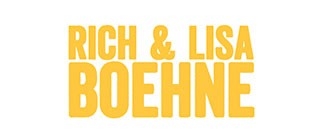Taught by Andrea Fieler
Continuation of grammar review and enhancement of language skills begun in GER 201; consideration of cultural and literary subjects as well. The special topic for this particular class was German immigration.
- Samantha Bachman, Student

In this course, we discussed German immigration to the United States as well as immigration to Germany with a particular focus on the refugee crisis. 360° videos served to immerse students further in the experiences of refugees in Europe.
As we discovered during our course, many of us have German roots. Language is one way to keep these roots alive. The Chronicle of Higher Education announced last year the results of a Modern Languages Association study, which sadly showed, that the United States has lost “a stunning 651 foreign language programs in three years.”
Organizations such as the American Association of Teachers of German strive to combat this trend by supporting students and teachers alike. The GER 202 students created for the Kentucky AATG chapter support plans spanning over a one-year period, which included immersion weekends for local high school students and professional development opportunities for instructors.
Samantha Bachman : This project helped me think about a nonprofit in a way I never had before, realizing how much donations really can help out with outreach and helping their target demographic.
If we had an awards ceremony, I would want people to know that AATG really wants to help both students and teachers better themselves and their own knowledge and education, as well as promoting German language, literature, and culture.
This nonprofit makes an effort to help their members and professionals develop and grow, where I had expected them to be geared more toward students and classroom knowledge and methods.
AATG is a great organization that helps as many people as it can and has a lot of different resources available to help its members. AATG helps fight against the loss of German heritage by promoting the language, literature, and culture to professionals, educators, and students.
Kendra Darby : The Mayerson project that we have collaborated to assist the AATG has reminded me how important cultural heritage is. In this case, we have focused on German heritage in Kentucky.
It was interesting for me to see how a non-profit organization like AATG can affect the lives of the community. From teachers to students, a difference is being made.
Peter Finke : AATG helps German teachers work together and share resources to promote German learning. Not many students are studying German today. AATG is one of the few organizations working to promote the German language and help teachers in the classroom.
Adrianna Porciello : This semester, we focused a lot on German heritage and immigration. Trying to find German nonprofits in Kentucky was one of the most difficult things this semester. We proudly chose AATG because we want to help spread education about German. Learning about the nonprofit and how we are supporting it has been an interesting experience for all of us.
Taylor Cloyd : I would like for the audience to know that the project would like to support the foreign language programs throughout the US. They should also know about the AATG and its endeavors to support the German teachers in many of these foreign language programs across the nation.
The contribution of this project could simply be that it is trying to preserve these dying programs, so that they can remain and continue to link nations and cultures around the world.
Jed Hale is a German teacher at Bourbon County High School and the treasurer of the Kentucky Chapter of the American Association of Teachers of German.
Here are his reflections on the immersion weekend that the NKU students designed and helped to fund:
The immersion weekend is important because it has been the only venue in the state where students from different German programs could come together and learn. It's not an authentic construct but provides an authentic feeling of actually using German outside of the classroom, which is just harder for students of German.
It also allows German teachers to come together, collaborate and have fun. I'm hoping having funding can entice many teachers to come, have fun, and inspire collaboration in the future.
Professor Fieler: The students' assignment was to create an year-long engagement plan for the NPO. Since we were a week away from their presentations, students were asked to record their presentations and upload them to Canvas.*
*Canvas is NKU’s online communication platform for course information; professors used it to share a syllabus, assignment or other course communication. Students can file assignments to Canvas.